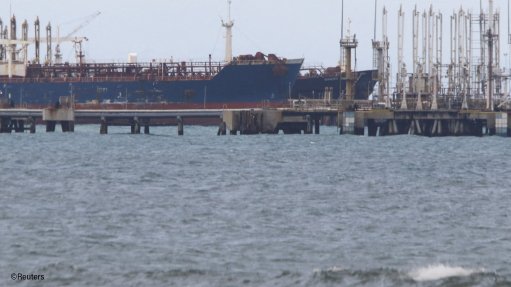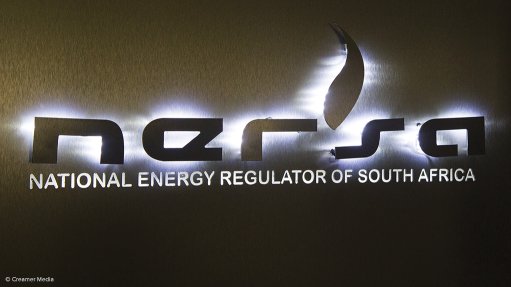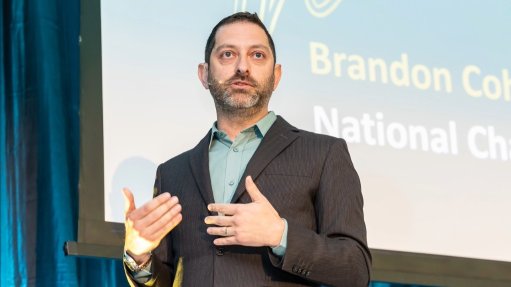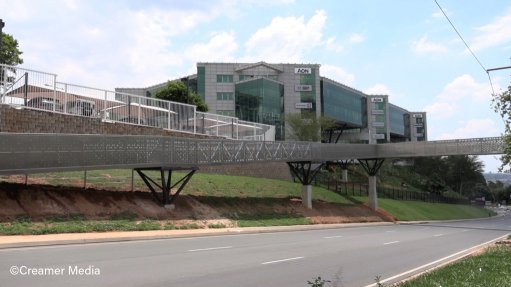Calls to even out procurement for wind energy
The South African Wind Energy Association (SAWEA) has called for energy planners to even out the procurement of wind energy allocations between 2021 and 2030 to prevent a "stop-start" scenario.
The current draft Integrated Resource Plan (IRP) has a gap in the years, 2022, 2023 and 2024, when no wind energy will be procured.
“A stop-start procurement would be bad for employment, as well as growth of the local manufacturing sector,” SAWEA CEO Brenda Martin said during public hearings into the IRP. She said this could lead to manufacturing facilities and support services deciding to close or retrench people. Investments in training and skills development, especially in manufacturing facilities, could also be lost.
“The sudden spike in the commissioning of new wind from 2026 to 2030 would then create an enormous bottleneck for local manufacturing demand,” said Martin.
She anticipated the loss of 1 179 full-time manufacturing jobs if procurement was stalled for three years, as well as investment in manufacturing.
Reflecting on the draft IRP, Martin said SAWEA had experienced what it was like to have manufacturing nearly grind to a halt during the recent two-year-long impasse in the signing of power purchase agreements with independent power producers.
Martin said wind made up 52% of the share in renewable energy in South Africa this year. Globally, renewable generation is to expand by over a third from 2017 to 2022, surpassing 8 000 TWh and reaching 30% of total world electricity generation.
Meanwhile, civil action organisation, the Organisation Undoing Tax Abuse (Outa) has welcomed the draft IRP’s "move towards a cleaner and least cost energy mix" for the future. Speaking on behalf of Outa, Ronald Chauke came up with several recommendations, including an upward adjustment of the 200 MW allocated to embedded generation.
Outa also called on the Department of Energy to reconsider the 2 500 MW allocated for hydro-electric power, given the politics and distance from South Africa. “Sourcing power as far away as Grand Inga in the Democratic Republic of Congo may not be an ideal move for us. Let’s be pragmatic and focus on things that are within our control,” suggested Chauke.
The organisation was also concerned about the ‘huge’ allocation for gas in the energy mix.
“A proper cost benefit analysis and due diligence hasn’t been undertaken on gas. We shouldn’t allocate a huge amount to something we haven’t undertaken yet.”
Article Enquiry
Email Article
Save Article
Feedback
To advertise email advertising@creamermedia.co.za or click here
Comments
Press Office
Announcements
What's On
Subscribe to improve your user experience...
Option 1 (equivalent of R125 a month):
Receive a weekly copy of Creamer Media's Engineering News & Mining Weekly magazine
(print copy for those in South Africa and e-magazine for those outside of South Africa)
Receive daily email newsletters
Access to full search results
Access archive of magazine back copies
Access to Projects in Progress
Access to ONE Research Report of your choice in PDF format
Option 2 (equivalent of R375 a month):
All benefits from Option 1
PLUS
Access to Creamer Media's Research Channel Africa for ALL Research Reports, in PDF format, on various industrial and mining sectors
including Electricity; Water; Energy Transition; Hydrogen; Roads, Rail and Ports; Coal; Gold; Platinum; Battery Metals; etc.
Already a subscriber?
Forgotten your password?
Receive weekly copy of Creamer Media's Engineering News & Mining Weekly magazine (print copy for those in South Africa and e-magazine for those outside of South Africa)
➕
Recieve daily email newsletters
➕
Access to full search results
➕
Access archive of magazine back copies
➕
Access to Projects in Progress
➕
Access to ONE Research Report of your choice in PDF format
RESEARCH CHANNEL AFRICA
R4500 (equivalent of R375 a month)
SUBSCRIBEAll benefits from Option 1
➕
Access to Creamer Media's Research Channel Africa for ALL Research Reports on various industrial and mining sectors, in PDF format, including on:
Electricity
➕
Water
➕
Energy Transition
➕
Hydrogen
➕
Roads, Rail and Ports
➕
Coal
➕
Gold
➕
Platinum
➕
Battery Metals
➕
etc.
Receive all benefits from Option 1 or Option 2 delivered to numerous people at your company
➕
Multiple User names and Passwords for simultaneous log-ins
➕
Intranet integration access to all in your organisation
















